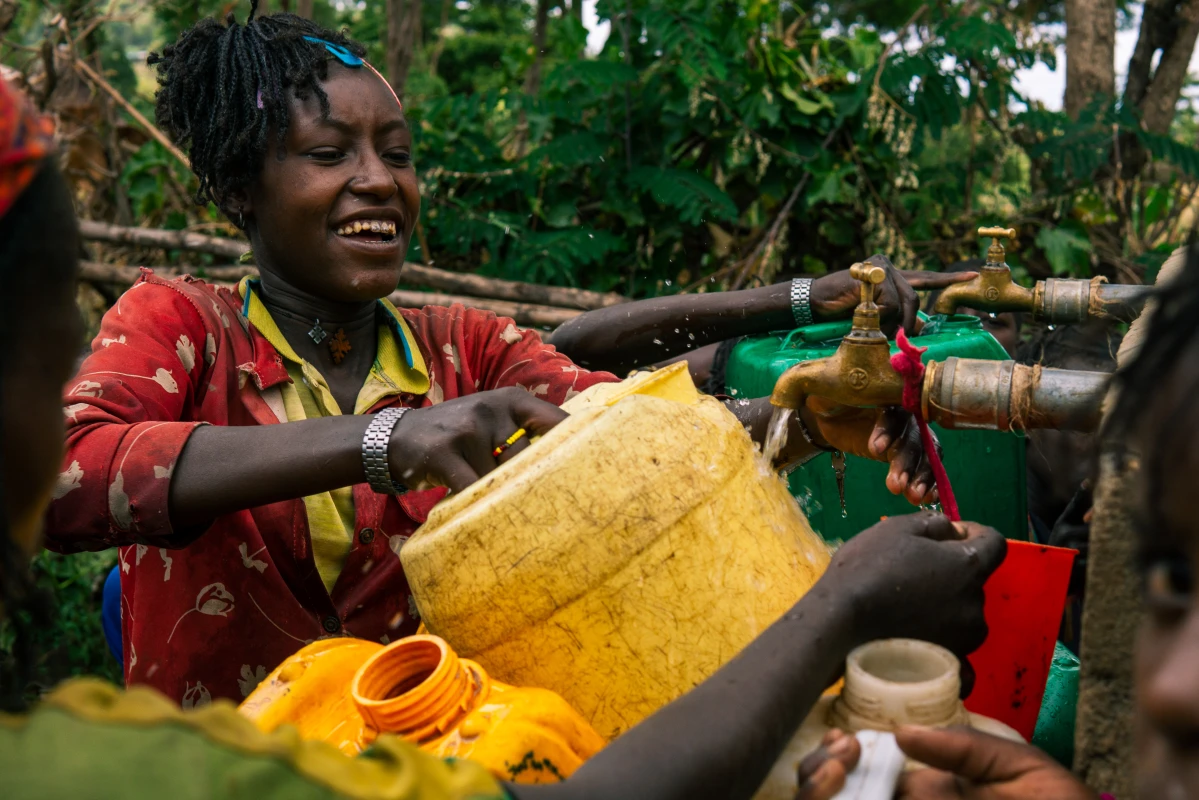Capacity statement on Water, Sanitation and Hygiene (WASH)

Many countries including Ethiopia struggle with a lack of good-quality drinking water. There are no reliable water supply or sewerage systems, and existing water sources are often fragile and contaminated. Women and children, particularly in rural areas spend much of the day carrying water from sources that are far away. Unsafe water consumption causes many diseases and epidemics that affect entire regions. The problem is further aggravated by the fact that there is usually insufficient awareness of good hygiene and sanitation practices and the risks related to the consumption of unsafe water. Improper practices can lead to an increase in waterborne diseases and thus hinder the development of children who are particularly vulnerable. Lack of sanitation and hygiene is strongly correlated with acute malnutrition and stunting.
A lack of management results in low sustainability and thus the efficiency and effectiveness of WASH interventions is at stake. The root causes for such problems are related to poor access and non-sustainability of water facilities and inadequate hygiene and sanitation practices. Therefore, sustainable access to safe water and improved hygiene and sanitation practices amongst communities and professions in the frontline of WASH service delivery are crucial for achieving social and economic development, improving health and livelihoods. PIN believes that the above-mentioned root causes can be solved by an integrated multisectoral approach, strengthening WASH systems and close involvement of local communities and authorities in planning and implementation of WASH programs.
